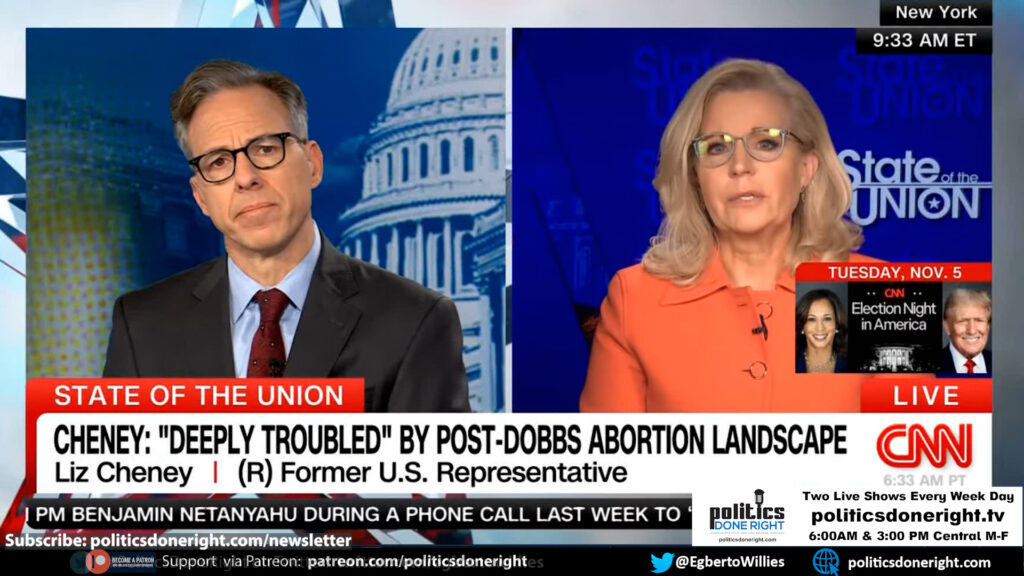Former Congresswoman Liz Cheney and anti-choice Republican statement on her new awareness of the damage done by SCOTUS’ Roe v Wade repeal is a permission slip for Republican women to vote for Harris.
Liz Cheney’s message on women’s abortion rights.
Podcasts (Video — Audio)
Summary
Liz Cheney, in a recent CNN interview with Jake Tapper, expressed her deep concern over the extreme abortion restrictions enacted in some Republican-led states following the Dobbs decision. While still identifying as pro-life, Cheney underscored that these restrictive laws endanger women’s lives and infringe on privacy, urging conservative women to consider the real-life impact of such policies. Her stance marks a rare bipartisan moment where a staunch Republican acknowledges the need for accessible healthcare, even if it means aligning, in part, with the views of Kamala Harris on women’s reproductive rights.
- Cheney, a pro-life advocate, spoke critically about extreme anti-abortion laws, particularly in Texas and North Carolina, noting they endanger women’s access to life-saving healthcare.
- She expressed frustration with policies that allow invasive practices, such as Texas Attorney General Ken Paxton’s attempt to access the medical records of women seeking abortions.
- Cheney underscored the need for reasonable healthcare access for women facing medical emergencies, such as miscarriages, which are jeopardized by strict anti-abortion laws.
- She acknowledged that many pro-life women are troubled by these policies and may reconsider their alignment with hardline Republican views on abortion.
- Cheney’s stance provides conservative women a bridge to support reproductive rights without fully abandoning their pro-life values, calling for bipartisan collaboration on healthcare.
Liz Cheney’s stance highlights a vital moment where conservative women can question and oppose the extremism driving today’s anti-abortion laws. By focusing on real-life healthcare consequences, Cheney helps reframe the abortion debate as one centered on empathy, practical healthcare, and women’s safety—values central to progressive movements fighting for reproductive rights and bodily autonomy.


